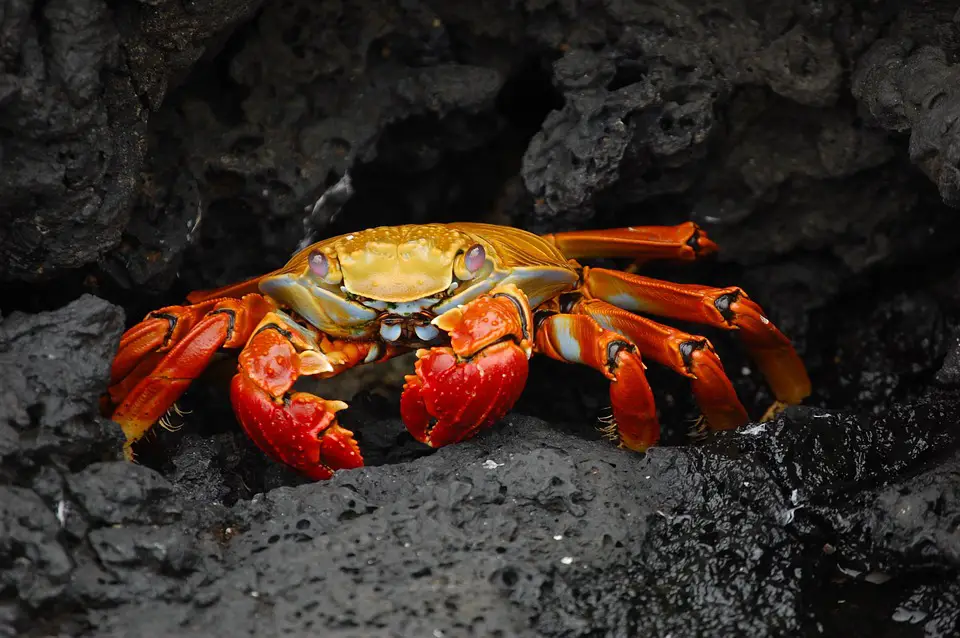
How to say crab in Spanish?
¿Cómo se dice crab en español? Crab in Spanish translation: cangrejo.
If you’re interested in learning how to say “crab” in Spanish, the word you’re looking for is “cangrejo”. This term is used in many Spanish-speaking regions around the world, from Spain to Latin America.
Cangrejos, or crabs, are a type of crustacean that are found in oceans, rivers, and other bodies of water around the world. They are prized for their meat, which can be eaten cooked or raw in a variety of dishes, from soups and stews to salads and sandwiches.
If you’re in a Spanish-speaking country and looking to order crab at a restaurant or market, you can use the word “cangrejo” to communicate your request. For example, you might say “Quiero comer cangrejo” to indicate that you want to eat crab.
It’s worth noting that there are many different types of crabs, and in some Spanish-speaking regions, different terms may be used to refer to specific varieties. For example, in Mexico, “jaiba” is a common term for blue crabs, while in Spain, “buey de mar” is used to refer to spider crabs.
Learning how to say “crab” in Spanish is just one way to expand your language skills and connect with Spanish-speaking cultures around the world. Whether you’re trying new foods, exploring new places, or simply looking to communicate with Spanish-speaking friends and colleagues, knowing the right words can help you navigate language barriers and build stronger connections.
Sentences with the word crab in Spanish
| ¿Has visto algún dia un cangrejo? | – | Have you ever seen a crab? |
| ¡Sólo he visto un cangrejo en mi vida! | – | I’ve only seen one crab in my life! |
| ¿Viste el cangrejo al lado del camino? | – | Did you see the crab on the side of the road? |
| Me gustaría comer un enchilado de cangrejo. | – | I would like to eat a crab enchilado. |
| El cangrejo no es una jaiba. | – | The crab is not a crab. |
| El cangrejo puede ser más o menos peludo. | – | The crab can be more or less hairy. |
| Un cangrejo es algo a lo que no hay que temer. | – | A crab is something not to be afraid of. |
| No tengo miedo de encontrar un cangrejo. | – | I’m not afraid to find a crab. |
| Si no temes a un cangrejo al menos sé prudente. | – | If you’re not afraid of a crab, at least be careful. |
| Las patas de cangrejo son ricas en proteínas. | – | Crab legs are rich in protein. |
| Me gusta la carne de cangrejo. | – | I like crab meat. |
| Me gustaría embalsamar un cangrejo. | – | I would like to embalm a crab. |
| Quiero chupr la muela de un cangrejo. | – | I want to suck the tooth of a crab. |
| No me gustaría encontrar un cangrejo gigante. | – | I wouldn’t want to find a giant crab. |
| ¿El cangrejo puede trepar un árbol? | – | Can the crab climb a tree? |
| !Definitivamente he visto un cangrejo en ése árbol! | – | I’ve definitely seen a crab in that tree! |
| Jamás he visto un cangrejo. | – | I have never seen a crab. |
| ¿Puedes atraer un cangrejo a esta trampa? | – | Can you lure a crab into this trap? |
| Quiero degustar un cangrejo. | – | I want to taste a crab. |
| El sabor de un cangrejo puede ser intenso. | – | The flavor of a crab can be intense. |
| También con el caldo de cangrejo se baja la fiebre. | – | Also with the crab broth the fever is lowered. |
| Un cangrejo puede ser muy peligroso. | – | A crab can be very dangerous. |
| ¡Ese hombre cazó un cangrejo! | – | That man caught a crab! |
| Me gustaría cazar un cangrejo. | – | I would like to hunt a crab. |
| ¿Quieres ir a cazar un cangrejo? | – | Do you want to go hunting for a crab? |
| No tendría valor para cazar un cangrejo. | – | I wouldn’t have the courage to catch a crab. |
| Puedo mirar a un cangrejo de frente. | – | I can look at a crab from the front. |
| Jamás podría ver a un cangrejo real. | – | I could never see a king crab. |
| Sólo he visto a un cangrejo en mi vida. | – | I’ve only seen one crab in my life. |
| El cangrejo más sabroso es el que lleva picante. | – | The tastiest crab is the one that is spicy. |
